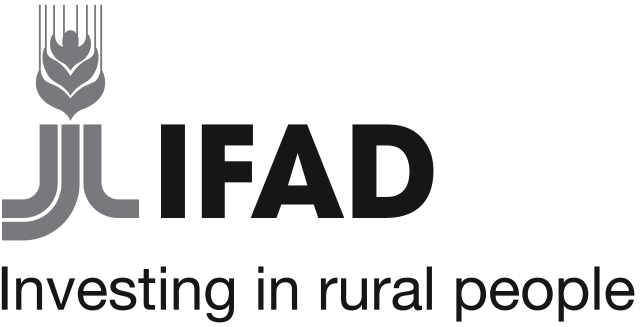Agricultural Sector Development Programme, IFAD Impact Assessment Surveys, 2018
United Republic of Tanzania, 2018
Get MicrodataIdentification
TTZA_2018_ASDP-IIAS_v01_EN_M_v01_A_OCS
Agricultural Sector Development Programme, IFAD Impact Assessment Surveys, 2018
| Name | Country code |
|---|---|
| United Republic of Tanzania | TZA |
Agricultural Survey [ag/oth]
The Agricultural Sector Development Programme–Livestock (ASDP-L) and the Agricultural Services Support Programme (ASSP) were implemented in Zanzibar to contribute to the government’s efforts to increase agricultural productivity and profitability, generate employment in rural areas, and ensure national and household food security. Both ASDP-L and ASSP were designed to develop agricultural production systems by empowering livestock keepers and farmers through capacity- building and training activities offered in the form of farmer field schools (FFSs).
Farmer field schools (FFS) are generally methods of training or education aimed at assisting farmers to learn informally, in their own environment and in a participatory format (FAO, 2001). A typical FFS usually consists of 15-20 members with a shared common interest in learning about ways to improve their agricultural practices
For more information, please, click on the following link https://www.ifad.org/en/web/knowledge/-/publication/impact-assessment-agricultural-sector-development-programme-livestock-asdp-l-and-agriculture-service-support-programme-assp-.
Sample survey data [ssd]
Individuals
Scope
The subjects covered by the survey are the following:
- household socio-demographic characteristics
- adoption and diffusion of improved agricultural practices
- agricultural and livestock production
- food security
- resilience
- women's empowerment
- agricultural income and household wealth
- market access.
Coverage
Regional. Ten districts of Zanzibar.
Poor rural farmers
Producers and sponsors
| Name | Affiliation |
|---|---|
| International Fund for Agricultural Development | United Nations |
| Name | Role |
|---|---|
| International Fund for Agricultural Development | Funding |
| Government of United Republic of Tanzania | Funding |
| Beneficiaries | Funding |
Sampling
The final data collection covered 2082 households (1050 beneficiary and 1032 control households) from 516 FFS in 108 shehias. The sampling methodology ensured a very robust determination of the counterfactual. The beneficiary farmers and control farmers were both randomly selected from the same shehias where the project was implemented.
No weighting.
Survey instrument
The impact assessment of ASDP-L and ASSP is based on a quantitative household survey conducted in 2018. The cross-sectional quantitative survey collected data from 2082 beneficiary and control households sampled using a quasi-experimental design. To inform the design and interpretation of the quantitative data, the impact assessment also drew information from a qualitative study conducted by the project staff as part of the project completion process, i.e. the Participatory Impact Assessment (PIA). The qualitative study was conducted for the purpose of understanding the impact of the programme at household, FFS group and community level, with a particular focus on farmers empowerment.
The cross-sectional quantitative survey collected data from 2082 beneficiary and control households sampled using a quasi-experimental design. To inform the design and interpretation of the quantitative data, the impact assessment also drew information from a qualitative study conducted by the project staff as part of the project completion process, i.e. the Participatory Impact Assessment (PIA). The qualitative study was conducted for the purpose of understanding the impact of the programme at household, FFS group and community level, with a particular focus on farmers empowerment.
Note: some variables have missing labels. Please, refer to the questionnaire for more details.
Data collection
| Start | End |
|---|---|
| 2018-02-17 | 2018-04-12 |
- Computer Assisted Personal Interview [capi]
Data Access
| Is signing of a confidentiality declaration required? | Confidentiality declaration text |
|---|---|
| yes | The users shall not take any action with the purpose of identifying any individual entity (i.e. person, household, enterprise, etc.) in the micro dataset(s). If such a disclosure is made inadvertently, no use will be made of the information, and it will be reported immediately to FAO |
Micro datasets disseminated by FAO shall only be allowed for research and statistical purposes. Any user which requests access working for a commercial company will not be granted access to any micro dataset regardless of their specified purpose. Users requesting access to any datasets must agree to the following minimal conditions:
- The micro dataset will only be used for statistical and/or research purposes;
- Any results derived from the micro dataset will be used solely for reporting aggregated information, and not for any specific individual entities or data subjects;
- The users shall not take any action with the purpose of identifying any individual entity (i.e. person, household, enterprise, etc.) in the micro dataset(s). If such a disclosure is made inadvertently, no use will be made of the information, and it will be reported immediately to FAO;
- The micro dataset cannot be re-disseminated by users or shared with anyone other than the individuals that are granted access to the micro dataset by FAO.
The use of the dataset should be referenced in any publication, using the following citation:
International Fund for Agricultural Development. Agricultural Sector Development Programme, IFAD Impact Assessment Surveys, Tanzania, 2018. Dataset downloaded from https://microdata.fao.org.
Disclaimer and copyrights
The user of the data acknowledges that the original collector of the data, the authorized distributor of the data, and the relevant funding agency bear no responsibility for use of the data or for interpretations or inferences based upon such uses
Metadata production
DDI_TZA_2018_ASDP-IIAS_v01_EN_M_v01_A_OCS_FAO
| Name | Affiliation | Role |
|---|---|---|
| Office of Chief Statistician | Food and Agriculture Organization | Metadata producer |
Metadata version
TZA_2018_ASDP-IIAS_v01_EN_M_v01_A_OCS_v01
